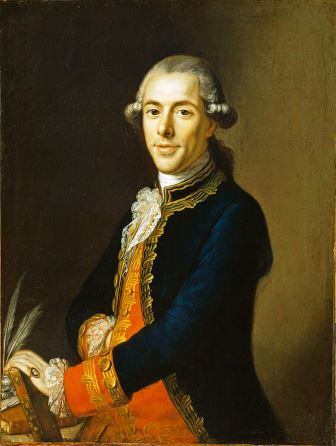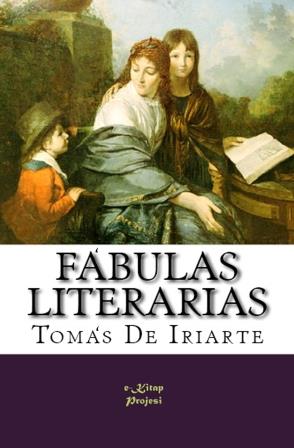More Search Results...

Tomás de Iriarte (or Yriarte) y Oropesa (Puerto de la Cruz, La Orotava, island of Tenerife, 1750 — Madrid, 1791), was a Spanish neoclassical poet.
Tomás was born to the Iriarte family, many of whose members were writers in the humanist tradition. His father was Don Bernardo de Iriarte, (1735 Puerto dela Cruz – Bordeaux, France, in exile, 1814) while his mother was Doña Bárbara de las Nieves Hernández de Oropesa.
He received his literary education at Madrid where he went aged 14 in 1764 under the care of his uncle, Juan de Iriarte, librarian to the king of Spain. In his eighteenth year the nephew began his literary career by translating French plays for the royal theatre, and in 1770, under the anagram of Tirso Imarete, he published an original comedy entitled Hacer que hacemos.
In the following year he became official translator at the foreign office, and in 1776 keeper of the records in the war department. In 1780 he authored a didactic poem in cilvas entitled La Música, which attracted some attention in Italy as well as at home.
The Fábulas literarias (1782), with which his name is most intimately associated, are composed in a great variety of metres, and was known for humorous attacks on literary men and methods, as was the case, again and again, with Juan Pablo Forner (1756–1797).
During his later years, partly in consequence of the Fábulas, Iriarte was absorbed in personal controversies, and in 1786 was reported to the Inquisition for his sympathies with the French philosophers.
He died of gout at Madrid, 17 September 1791, aged only 41.
He is the subject of an exhaustive monograph (1897) by Emilio Cotarelo y Mori, (Vegadeo, 1 May 1857 – Madrid, 27 January 1936), member of the Royal Spanish Academy, just that year.
Fabulas Literarias
Pero es mas conocido por sus Fabulas literarias (1782), editadas como la «primera coleccion de fabulas enteramente originales» en cuyo prologo reivindica ser el primer espanol en introducir el genero, lo cual motivo una larga contienda con el que habia sido amigo desde largo tiempo, Felix Maria Samaniego, ya que este ultimo habia publicado su coleccion de fabulas en 1781, hecho de sobra conocido por Iriarte.
More info →
































